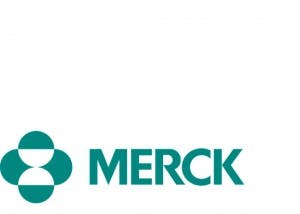In the big pharma sector, it can oftentimes be hit or miss when seeking the next big growth stock. Yet, while it may be difficult to predict what company will produce “the next big thing,” there is something to be said about riding price up slowly while cashing in on dividends along the way. One stock opportunity that could provide a steady stream of dividend income is Merck & Co., Inc. (NYSE:MRK). With its product pipeline full of potential winners, investors could be well-rewarded in terms of income and eventual high growth.

Finding profit in new alternatives
While the economic recession of 2008 and 2009 impacted numerous companies’ stock prices and dividends, the way that the affected companies have bounced back could say a lot about their future potential growth.
Back in November 2011, Merck & Co., Inc. (NYSE:MRK) announced a dividend increase – the first in seven years – which was a good move for the firm. Since that time, Merck’s cash and short-term equivalents have risen by over $2.5 billion, which is substantial for a pharmaceutical firm. Given this, it could be that Merck has future dividend increases in store for its shareholders.
Merck & Co., Inc. (NYSE:MRK) has had to push through a few hurdles over the past several months, though. For instance, the loss of the company’s patent exclusivity for its allergy and asthma drug, Singulair, could have had an extremely negative effect on company earnings, especially in light of the fact that, after Merck’s 20-year exclusive rights to this drug, generic drug manufacturers can now begin to produce their own versions of this med. Yet, even with that large blow, Merck finished out 2012 on a positive note, including an increase in earnings and earnings per share.
Pushing through the product pipeline
One reason for Merck & Co., Inc. (NYSE:MRK)’s positive results, in lieu of the Singulair situation, is the fact that Merck continues to develop new products with high potential. For example, the company’s diabetes drug, Januvia, as well as Gardasil (a vaccine used for treating cervical cancer) have both posted highly positive sales results.
Merck & Co., Inc. (NYSE:MRK) has worked to develop other products, too, that could essentially help in replacing the lost future revenue from Singulair. These include Suvorexant (used to treat insomnia), Bridon (a neuromuscular reversal agent), and its cholesterol drug, Tredaptive.
Are competitors close behind?
Several of the other big pharmaceuticals have certainly had their ups and downs over the past few years as well. Pfizer Inc. (NYSE:PFE), for example, recently dealt with the Canadian Supreme Court’s ruling that the company’s long-time patent for its popular drug, Viagra, is invalid.
The court stated that its reasons for this include Pfizer’s failure to specify the active ingredient, sildenafil, in the drug. Regardless, Pfizer has stated its intent to continue its defense against the challenges that this ruling has posed to the company’s intellectual property.

